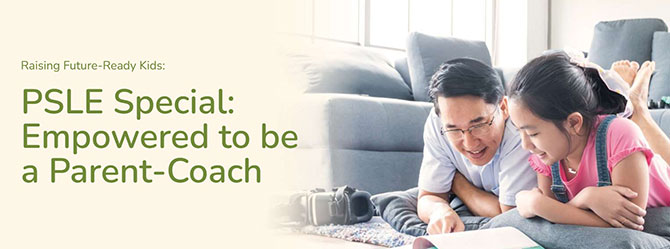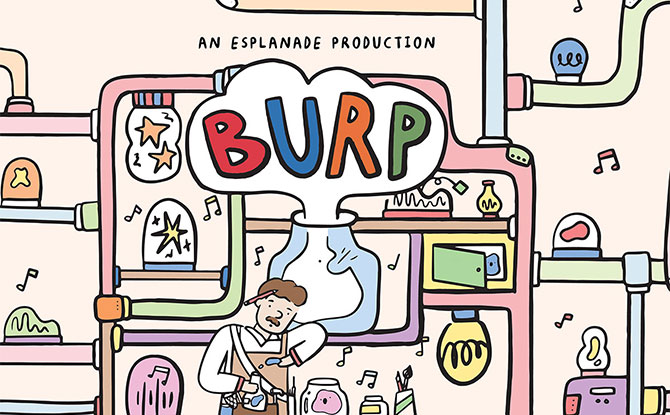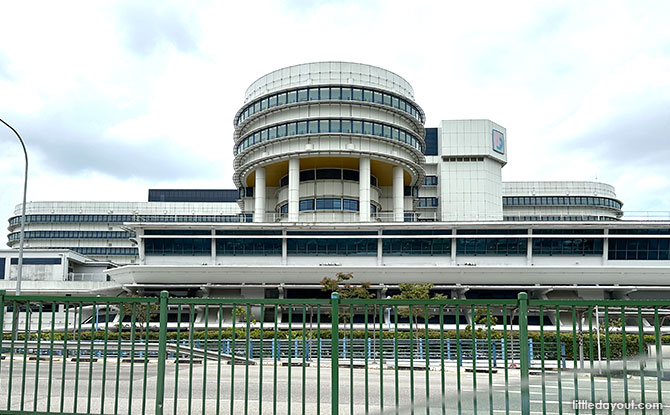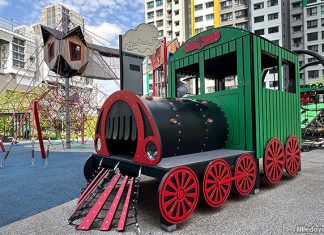
PSLE – the annual examinations that parents and children fear and perhaps drives the anxiety that many face. How can parents support their children in their academic journey? Perhaps PSLE means a lot more guidance and coaching by parents as adolescents need the support in crucial examinations, how should we help them while equipping them with lifeskills?

I attended Focus On The Family’s “PSLE Special: Empowered to be a Parent Coach” webinar to learn how I can better support my child in his PSLE journey. Conducted by Family Life educator Chong Ee Jay and facilitated by experienced parent facilitators, the PSLE parent coach webinar guided parents on how to recognise mental and emotional stresses, how to nurture a growth mindset and how to understand child’s needs to tailor the game plan accordingly.
8 Tips For PSLE Parents
1. Recognise the stressors for ourselves and our children
The first things to identify would be our stressors. Is PSLE to be feared? Are there other stressors causing this high stakes examination to inflate the kind of anxiety in us?
Perhaps you and your child face societal pressure, expectations deemed too challenging, poor relationships that fuel the pressure. Identifying them and talking about them, while trying to minimise what we can control may help to reduce the unnecessary stress.
BE PSLE-READY: Join Expert Educators for Revision Boosters to Empower P6 Students
BURP: Join the Sound Collector on a Whimsical Chase at Esplanade – Theatres on the Bay
WEEKEND IDEAS: Get Inspirational Ideas of Things to Do
I have heard children in lower primary levels already discussing the PSLE and wanting to do well. While that is a ideal goal to have, perhaps the expectations we have set on our children have already planted that seed of “PSLE giant” in their minds.
2. Nurture Psychological Resilience
Rather than foster a culture of fear towards examinations and challenges, we should nurture psychological resilience in our children. The ability to recover from challenges and springing back from failures is a disposition that is necessary for the rest of our lives and not just the PSLE.
How can we encourage psychological resilience and a growth mindset? Read on.
3. Determine Your posture (RCE)
An acronym to remember is RCE.
“R” stands for relationship and reasons.
Your relationship with your child underpins your efforts and ability to be an effective parent-coach. Ee Jay emphasises this a lot during his talk. The parent-child relationship is key not just in examination preparation but problem-solving, being resilient and making the reasons behind the action even more compelling.
“C” stands for choice and collaboration. Parents should not always be enforcing routines as children ages 11 and above will need to be given choices. It also means a more collaborative approach rather than a top-down authoritarian one in the tween and teen years. There can be more autonomy given so as to promote accountability and responsibility.
“E” is example and expectations. Do we set a good example for our children? Are there examples they can emulate? Are our expectations reasonable? Have we communicated and agreed on the expectations and therefore goals set?
4. Using Questions Apart from WHY
Parents tend to gravitate towards asking why. “Why are you not working harder?” “Why are you glued to your phone?”
Instead of asking why, we should use more of who, what, when, where, how in order to coach our children effectively. For instance, we should put ourselves in their shoes and attempt to find out their thoughts. “What made you think this way?” “How do you think you will approach this problem?” “How can we work on this goal?” “When do you plan to finish this chapter?”
Our questions ought to be finding out our children’s needs rather than a premature jump to conclusions when we ask “why”.
5. Calm down and look at the bigger picture
I can attest to overreacting, reacting rather than responding to my child calmly. Hence we need to exercise calm and be wise to hold back, whether it is holding our tongue or punishments.
Take 5 and calm down when there are triggers. Whenever our children are hostile, less pleasant or even defiant, this should send a message about our approach. We often need to recalibrate our strategy before engaging them.
6. The BOUNCE Strategy
We were also introduced the BOUNCE strategy.
Beliefs: Believing in our children’s ability
Outdoors: Heading outdoors to de-stress
Usefulness: Our children’s purpose
Night: Sufficient quality sleep
Community: Friends, peers and support group
Emotions: Addressing the emotions of our children
Each of the pointers are important to help our child further their potential in life. We can work on all these areas to help our children in PSLE preparation – reminding them of our belief in their ability, heading outdoors as a family, ensuring quality sleep are some practical steps we can take.
7. Remember the long-term goals
While the PSLE are a huge life event, it is just part of the journey. One parent-child pair who shared their PSLE journey with attendees talked about long-term goals for your child. Any examinations help to build good study habits which include discipline, autonomous studying, learning to focus – all essential skills required especially in secondary school years. The PSLE is a mere practice session for these study skills.
Preparing for the PSLE also will give students the confidence they need in tackling even tougher challenges ahead especially in secondary school life where one has to balance academics and intensive co-curricular activities.
8. Understanding our child’s needs – Less is More
It is important to know our child’s needs, they know what would best help them. For instance, too many tuition classes might mean additional workload that the child can’t cope with. It is important to allow downtime and assess the effectiveness of each class. Sometimes, less is more.
More practice and classes could sometimes result in burnout, therefore an important rhythm needs to be established. Otherwise we could be pushing our child too hard and intensify the pressure.
PSLE: Parents Support with Love & Empower
One takeaway from the webinar was that the PSLE is a big opportunity for parents to support their children with love and to empower them with the skill sets applicable for a lifetime. It is not just a challenge to our child to sit for the examinations, but they would be a test of our unconditional and unwavering love for them amidst this milestone.
To find out more about future webinars, click here.






















